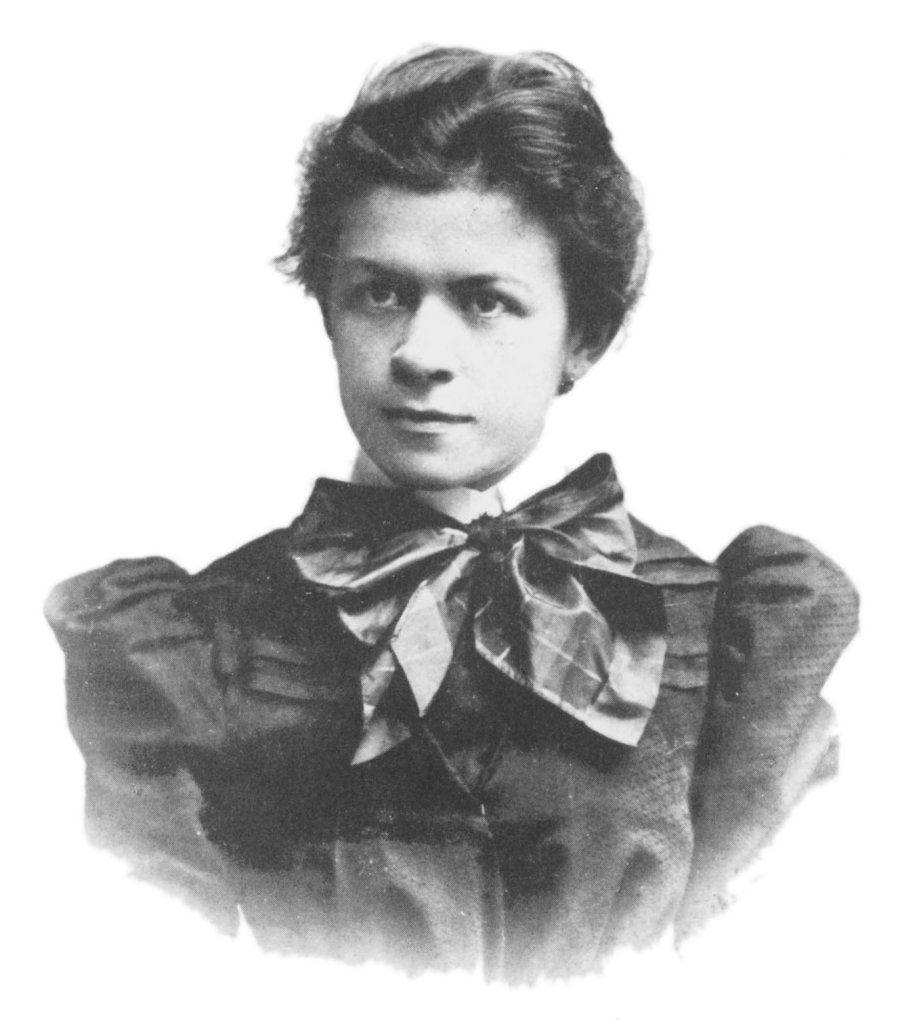“I need my wife. She solves for me all my mathematical problems”, Albert Einstein used to say [1]. What?
I have to admit that until today I knew literally nothing about Mileva Marić (1875—1948). It was thanks to publication of Rosa Montero in El País Semanal [2] that I looked her up. Her life was fascinating and tragic. Quite apart from being a brilliant mind, her husband was an ordinary asshole.
I look forward to resume our new common work. You must now continue with your research — how proud I will be to have a doctor for my spouse when I’ll only be an ordinary man.
We will send a private copy to Boltzmann to see what he thinks and I hope he will answer us.
How happy and proud I will be when the two of us together will have brought our work on relative motion to a victorious conclusion.
<Michele Besso> visited his uncle on my behalf, Prof. Jung, one of the most influential physicists in Italy and gave him a copy of our article.
 |
| Marić in 1896 |
Whatever was Mileva’s actual contribution, we may never learn. Einstein submitted articles signed by his name only. Abram Ioffe claimed that “he saw the original three submission papers of the 1905 theory of relativity paper and said they were signed Einstein-Marity <Hungarian variant of Marić>. However, Marity was removed from the final publication” [3].
In 1912, Albert embarked on an affair with his first cousin, Elsa Einstein (Löwenthal). He forced Mileva to sign a humiliating contract [4, 5]:
“Mileva moved back to Zurich with her two sons on 29 July 1914. In 1919, she agreed to divorce, with a clause stating that if Albert ever received the Nobel Prize, she would get the money. <...> In 1925, Albert wrote in his will that the Nobel Prize money was his sons’ inheritance. Mileva strongly objected, stating the money was hers and considered revealing her contributions to his work” [1]. Here’s what her ex responded:
- You will make sure:
- that my clothes and laundry are kept in good order;
- that I will receive my three meals regularly in my room;
- that my bedroom and study are kept neat, and especially that my desk is left for my use only.
- You will renounce all personal relations with me insofar as they are not completely necessary for social reasons. Specifically, You will forego:
- my sitting at home with you;
- my going out or travelling with you.
- You will obey the following points in your relations with me:
- you will not expect any intimacy from me, nor will you reproach me in any way;
- you will stop talking to me if I request it;
- you will leave my bedroom or study immediately without protest if I request it.
- You will undertake not to belittle me in front of our children, either through words or behavior.
You made me laugh when you started threatening me with your recollections. Have you ever considered, even just for a second, that nobody would ever pay attention to your says if the man you talked about had not accomplished something important. When someone is completely insignificant, there is nothing else to say to this person but to remain modest and silent. This is what I advise you to do.
References
- Gagnon, P. The forgotten life of Einstein’s first wife. Scientific American, 19 December 2016.
- Montero, R. Ella también. El País Semanal, 2 June 2019.
- Banovic, R. Does Albert Einstein’s first wife Mileva Maric deserve credit for some of his work? Independent, 13 June 2018.
- Smith, D. Dark side of Einstein emerges in his letters. The New York Times, 6 November 1996.
- Isaacson, W. Einstein: His Life and Universe. Simon & Schuster, New York, 2007.